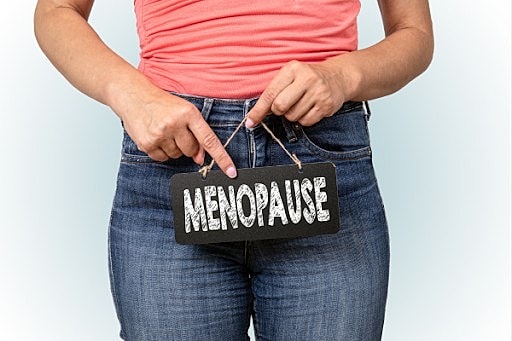

Menopause is a natural phase in a woman's life, but it often comes with a variety of changes and challenges, including the lesser-known but impactful condition known as Genitourinary Syndrome of Menopause (GSM). In this blog post, we'll delve into what GSM is, its symptoms, and effective management strategies to improve quality of life for women experiencing this condition.
Understanding Genitourinary Syndrome of Menopause (GSM)
GSM, formerly referred to as vulvovaginal atrophy or atrophic vaginitis, is a common condition that affects many menopausal and postmenopausal women. It is characterized by a range of symptoms related to the genitourinary tract, including the vulva, vagina, urinary tract, and pelvic floor muscles. GSM occurs due to the decline in estrogen levels during menopause, leading to changes in the structure, function, and health of these tissues.
Symptoms of GSM
The symptoms of GSM can vary in severity from mild discomfort to significant impairment of quality of life. Common symptoms include:
1. Vaginal Dryness: Reduced lubrication and moisture in the vaginal tissues, leading to discomfort, itching, and pain during intercourse.
2. Vaginal Atrophy: Thinning, drying, and inflammation of the vaginal walls, which can cause irritation, burning sensations, and an increased risk of vaginal infections.
3. Dyspareunia: Painful intercourse due to vaginal dryness, atrophy, or irritation, leading to decreased sexual pleasure and intimacy.
4. Urinary Symptoms: Increased frequency of urination, urgency, urinary incontinence, and recurrent urinary tract infections (UTIs) due to changes in the urinary tract and pelvic floor muscles.
5. Genital Symptoms: Redness, irritation, and discomfort in the genital area, including the vulva, labia, and clitoris, which may contribute to sexual dysfunction and decreased arousal.
Management Strategies for GSM
Fortunately, there are several effective management strategies available to alleviate the symptoms of GSM and improve overall comfort and quality of life for women. These strategies include:
1. Topical Estrogen Therapy: The primary treatment for GSM involves the use of estrogen-based vaginal creams, tablets, or rings, which help to replenish estrogen levels in the vaginal tissues and restore moisture, elasticity, and health. These treatments are available by prescription and are typically applied directly to the vagina for localized effects with minimal systemic absorption.
2. Non-Hormonal Moisturizers and Lubricants: Over-the-counter vaginal moisturizers and lubricants can provide temporary relief from vaginal dryness and discomfort, especially during intercourse. These products help to hydrate and lubricate the vaginal tissues, reducing friction and irritation.
3. Pelvic Floor Physical Therapy: Pelvic floor exercises, biofeedback, and other physical therapy techniques can help strengthen the pelvic floor muscles, improve bladder control, and alleviate symptoms of urinary incontinence associated with GSM.
4. Lifestyle Modifications: Lifestyle changes such as avoiding irritants like perfumed soaps, douches, and harsh detergents can help reduce irritation and inflammation in the genital area. Drinking plenty of water, maintaining a healthy diet, and practicing good hygiene habits can also support vaginal and urinary tract health.
5. Sexual Counseling and Therapy: For women experiencing sexual dysfunction or relationship issues related to GSM, counseling and therapy can provide valuable support, education, and guidance to improve communication, intimacy, and sexual satisfaction.
Genitourinary Syndrome of Menopause (GSM) is a common and often underdiagnosed condition that can significantly impact the quality of life for menopausal and postmenopausal women. By understanding the symptoms of GSM and implementing effective management strategies such as topical estrogen therapy, non-hormonal moisturizers, pelvic floor physical therapy, and lifestyle modifications, women can find relief from discomfort and improve their overall well-being during this transitional phase of life. It's essential for women to discuss their symptoms with a healthcare provider to receive personalized treatment recommendations and support tailored to their needs. With the right approach, women can navigate GSM with confidence and reclaim their comfort and vitality.